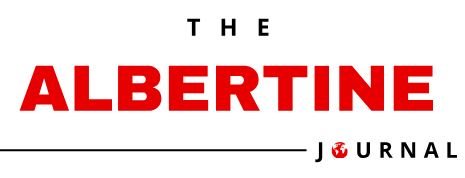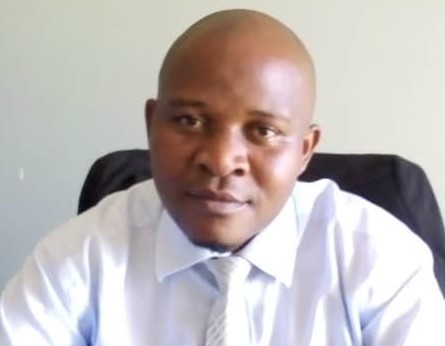Every year, economies compute and use its economic ratings like Net Growth Product (NGP), Growth Domestic Product (GDP) and other economic indicators as a measure of progress or lack of progress.
Little is however, made to trace the contribution of experts to this progress. For example, Uganda passionately recognises the role nannies exported to United Arab Emirates (UAE), Saudi Arabia and Quatar, but not the professional consultancies experts bring to our foreign exchange earnings.
The contribution of these expertise is largely fused to the other economic indicators largely because experts have become followers of processes for the macro and micro social transformation.
We have reached a level of questioning not challenging the relevance of experts. This is the reason expert opinions no longer matter in development practice.
Professionals will soon become followers of none experts. The less expertise population have mediocre idea that generate enthusiasm.
Therefore, the expert great ideas that inspires no one. Are professionals and experts challenged when new means of engagement that is radical and none conventional replace dialogue and research. For example, all universities generate well researched papers on development problems.
However, after graduating these professionals, the recommendations remain on the shelves of these university libraries and the professionals still remain unemployed.
This is the reason I ask you to question expertise in terms of relevance and impact to society building.
While Uganda celebrated great milestones achieved regarding the business and human rights, a reflection was made during the sixth symposium on Business and human rights in Kampala.
What intrigued me was a call by the minister of Justice and Constitutional Affairs Hon. Nobert Mao who provocatively called upon experts to stop being irrelevant.
As an expert, I have lingered around our usefulness and what contribution we can play. Perhaps we could have not made an assessment of our stake, but we could be evaluated by how much we are expected to offer to the challenges of society.
Well, society is used to consuming whatever is provided. In our ancient era, education automatically guaranteed intellectualism.
As such, whoever went to school was perceived to have become both educated and an expert. As of today, questioning expertise is growing.
Experts are being questioned and challenged by none experts and the political class. What if experts become relevant; would society have the current development challenges we face?
My instinct tells me that education should be able to liberate society from the level of vulnerabilities and address the development challenges.
This must be done further on grounds of experts dining with evil or using the development challenges to manipulate society.
Therefore, a journey of asking the relevance of education, usefulness of expertise, what the experts, elites, educated must be doing will continue until the educated, professional and most deemed empowered become of great value to solving the development challenges of society.
The experts are therefore supposed to act differently if current development challenges are supposed to be addressed using expertise opinions and shaping the solution agenda for Uganda and the world.
My interaction with many professionals and experts has found a lot of self-doubts of the role and contribution experts do or can do. I am deeply concerned that experts are their own biggest critic.
People around you don’t see the faults in your expertise that you do. Experts must just start doing good that influence public policy and a better society.
If professionals and experts don’t this, the none expert will automatically take charge and occupy the vacuum.
Most experts like professionals are full of self-censorship. You can’t change how people feel about you. We must not dare try to address the reactions but define how we want society to be shaped by our expertise.
As a generation, we must know why we have experts. God doesn’t make any mistake. He could not make you an expert to do nothing to society.
You have the answers that in your capacity, you are an expert. Experts are expected to draw a line between what is and what should be.
“What is” is for average minds. What should be is a role of experts. Experts must recognize that the greatest challenge in life is discovering who you are.
professionals must know their place in society social transformation. The second greatest challenge is being happy with what you find.
Experts have a duty to create value and therefore acknowledge that society id demanding and expecting more from what we are not doing yet should be doing.
Experts must be able to define what is good and what should be done to reach and realise this good. Policy makers have a duty to create platforms through which expertise can be tapped. I am sure that ignoring expertise is so costly.
Globally, great leaders must make their decisions on the basis of advice and thesis of experts.
The concern is not whether experts are irrelevant but its ability to meaningfully generate useful knowledge, challenge bad models, shape what is good and expertise processes. For example, society only respects value.
Expertise and experts must prove that they provide leadership and useful shaping of a better society.
Have we asked ourselves why information platforms like the media prefer to engage the misinformed and leave the experts?
Experts must simplify its expertise to make it palatable and solution to the needs of society.
As I pen this off, experts must have the courage to tell actors what they don’t want to hear, must be on a frontline of providing therapy for emerging development challenges.
How do I tell my daughter that education and her expert can be of value yet illiterates and the most ignorant are adored and even the opportunities even in government engage the weakest and those who don’t question.
For example, most of the known presidential advisors have questionable expertise capacities let alone their education levels.
Does this mean that experts have not shaped ethics, not defined good or their expert opinion no longer matter? Its important that our experts believe in their capacity.
They must be more faithful to what they know such that public policy and practice is rallied around their expertise.
For example, having weak redundant dumb citizenship is typically a concern we must question exerts.
All this shared, experts have become less useful as they want to trade expertise at the expense of local indigenous solutions that also have some degree of efficacy.
It’s time for experts to question processes in all spheres of like in governance, climate change, citizenship and the future.
The whole world is waiting for your models’ dear experts. Its time to share your strategies. Experts must work with government to encourage citizens to disagree with policies, plans, programs and all initiatives that appear not to efficiently address the development questions of the time.
Dear experts, in your own capacities, in your sectors, we want to believe everything you say, guide and share.
Deep in my mind, I know you are experts of courage. Borrowing from my father’s guidance, “when people who are bold headed say that its hot, sympathize with them”.
We acknowledge that you have a role that you must play before our societies become dearly vulnerable.
The public has become so dumb. There is limited trust in us the experts. Most litigation is due to lack of deep trust in expert opinion.
It’s time for experts to question our relevancy, begin shaping the good we see with courage and passion.
I am looking forward to influencing other professionals in a positive way. My agenda is to make sure that use your expertise in anyway you can to shape a just society.
The Author is the Executive Director Recreation for Development and Peace Uganda (RDP Uganda) a youth national NGO based in Masin



